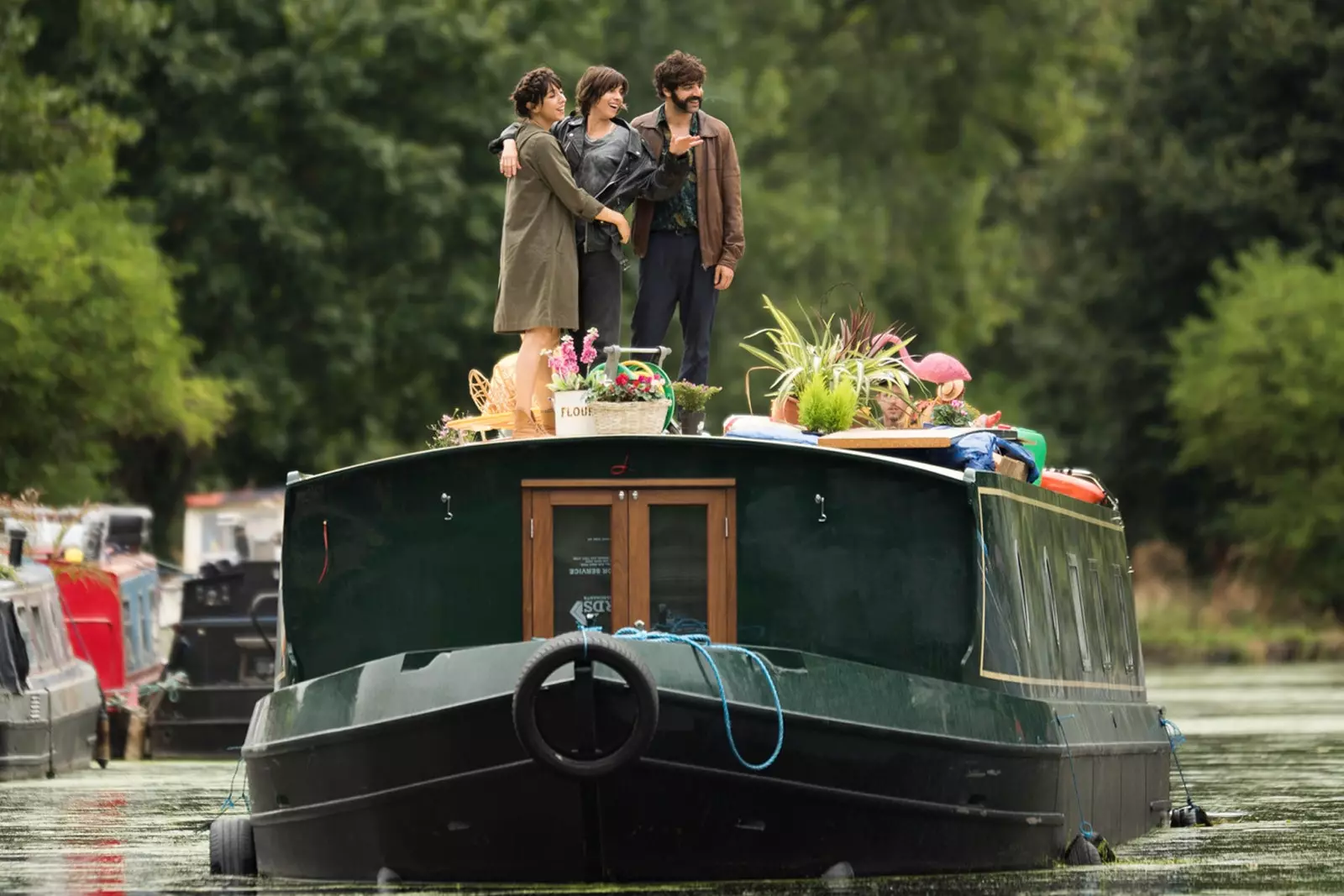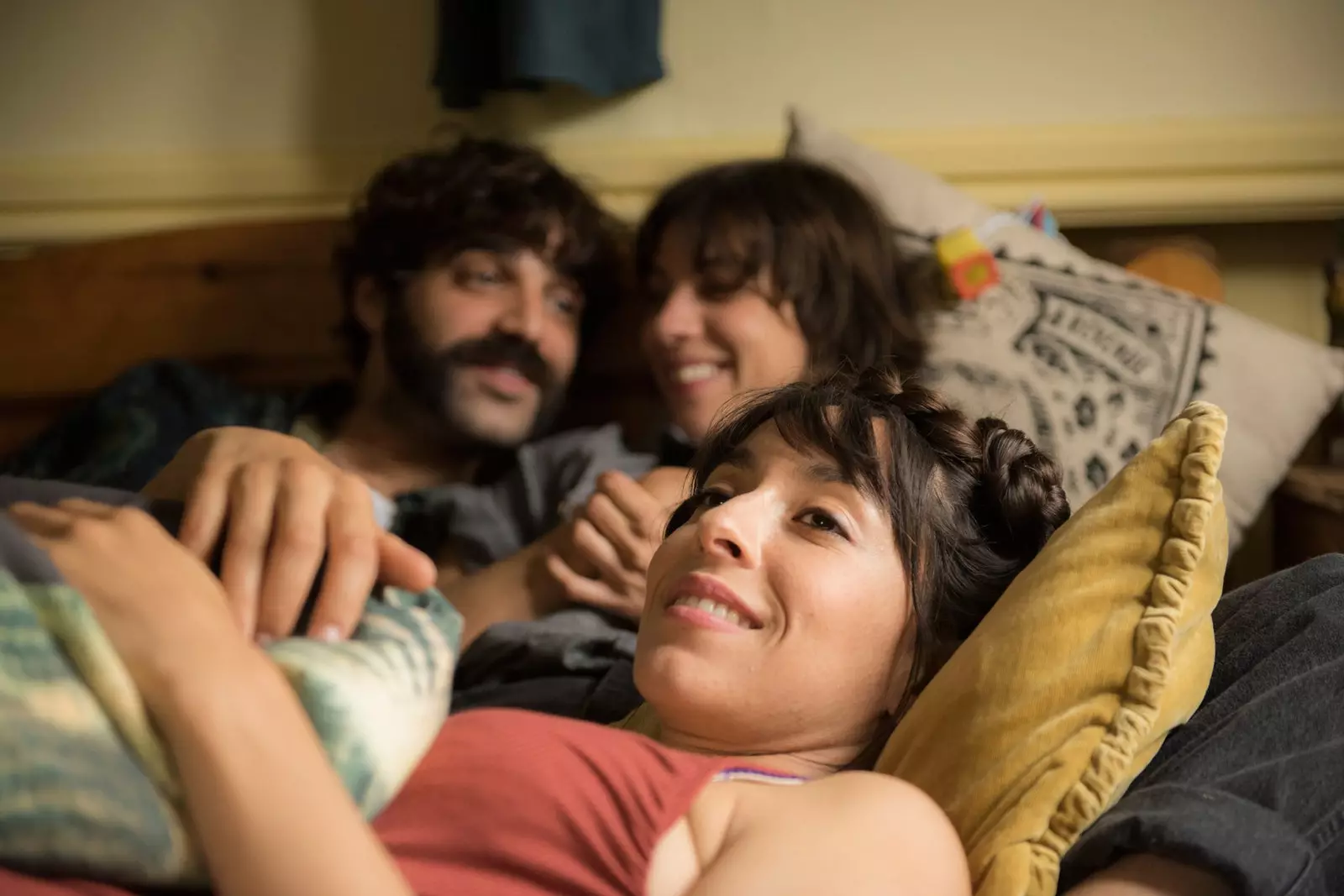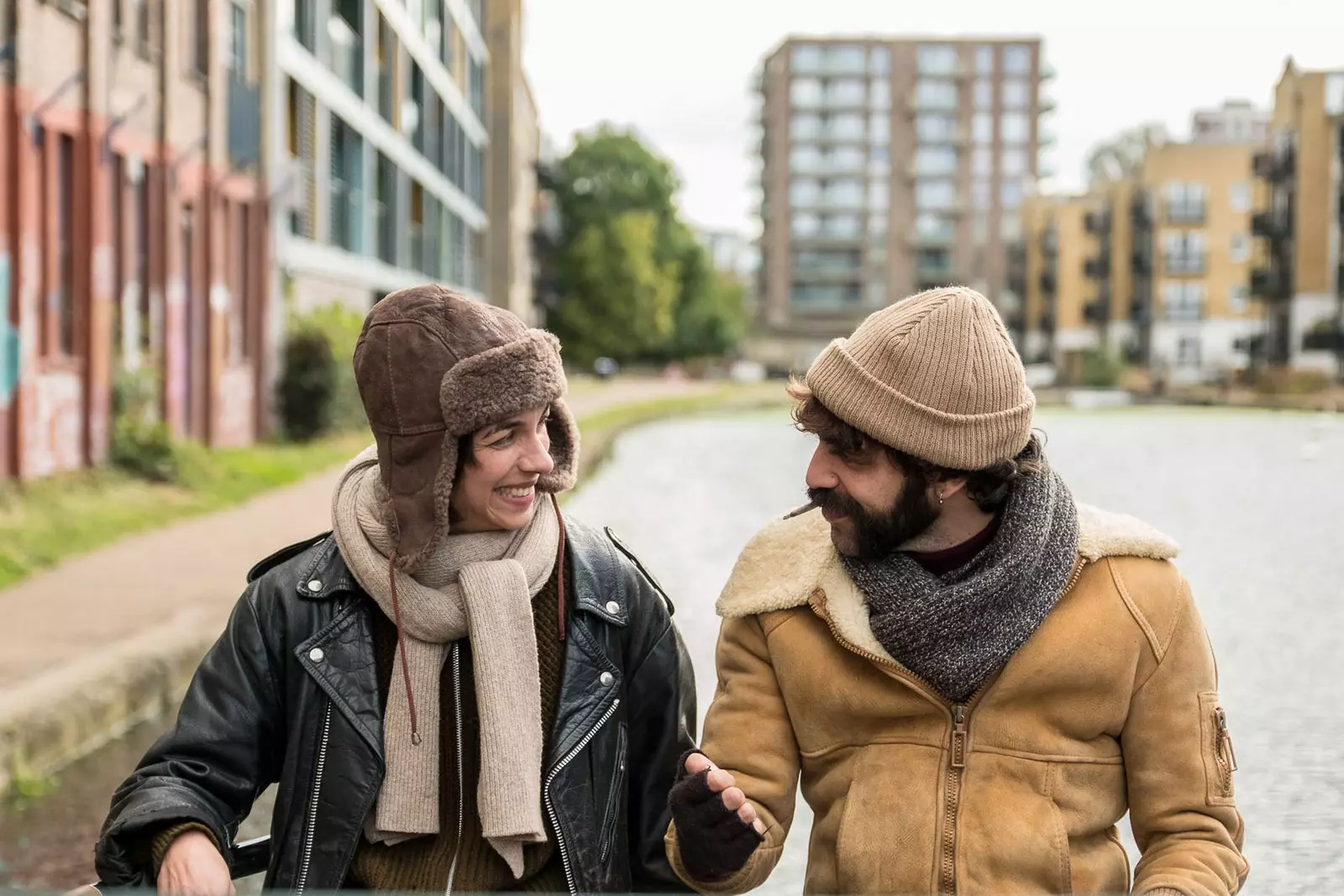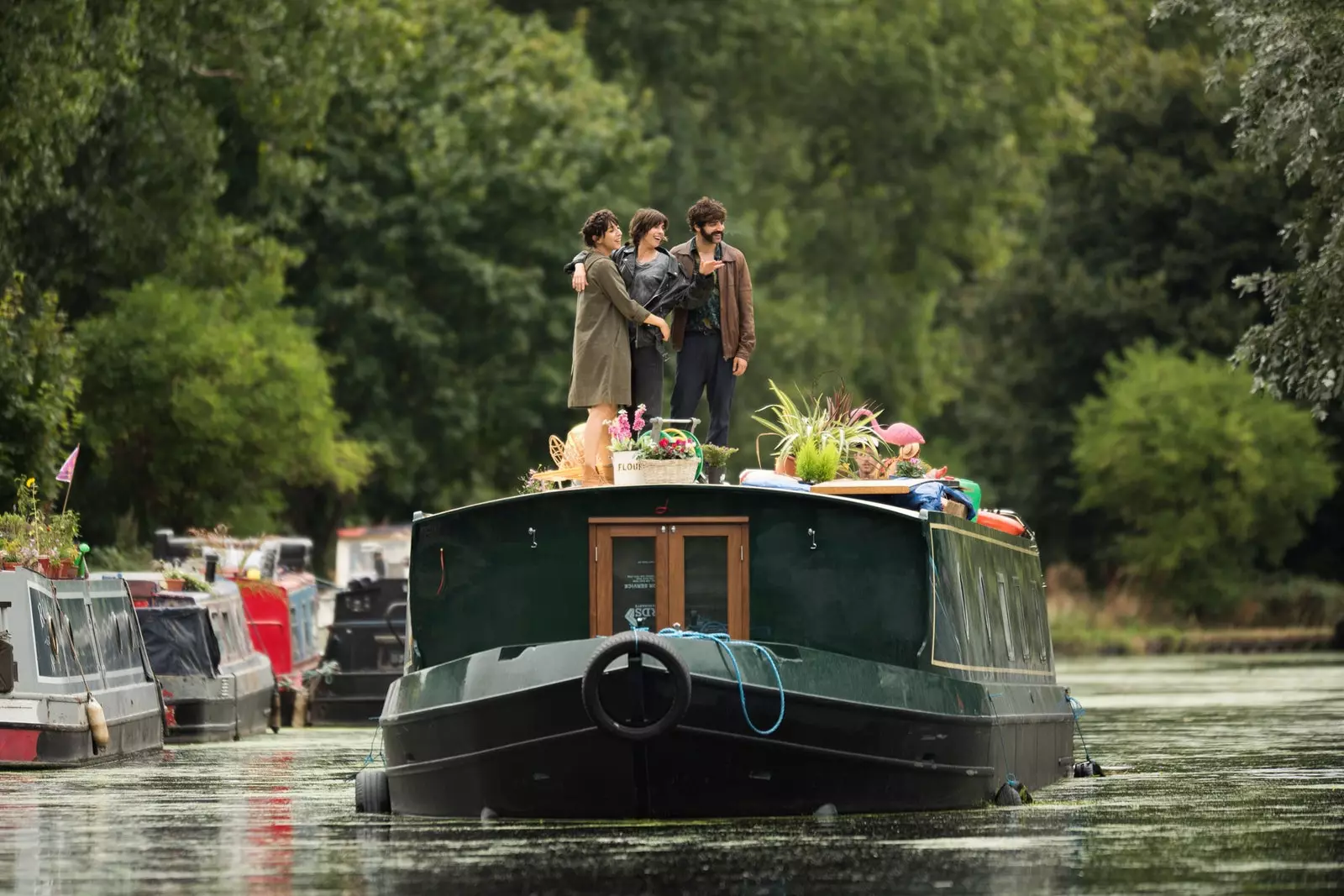
All aboard.
We tour the canals of the British capital in the kat and eve boat , the protagonists of the film Mainland . And one of the actresses, Natalie Tena , serves as our guide and captain.
“Do you live on a boat, are you very poor or what?” some unexpected guests ask **Kat (Natalia Tena) and Roger (David Verdaguer)** when they are taken to their not-so-humble abode in London; and, above all, not so strange anymore. According to the latest data from the Canal & River Trust, the organization that manages the canals of England and Wales, ships registered and moored in London have grown by almost 60% in the last five years. which translates to some 4,000 houseboats and calculate that more than 11 thousand people living in them. Some are now bars and cafes, and even shops.

On dry land only at times.
So no, Kat and Roger aren't that weird and they're certainly not that poor. Roger is visiting, but Kat and **Eva (Oona Chaplin)** live on a boat because it's cheaper to live on land in London and for the feeling of freedom.
In Mainland, Carlos Marques-Marcet's film, his second film after putting into images what it means (and hurts) to have a long-distance relationship in 10,000km, the ship and life moving through canals serve as a metaphor for this thirtysomething youth we live in now, in which we don't know whether to drop anchor and settle down, as society traditionally understands, or prefer to keep moving.

Fall in love on channel
The actress and singer Natalia Tena, who in the film works as a ship restorer and is the happiest on the water, also lives on a boat in London. “I started in 2012, first I had a smaller one and for this movie I thought it was time to move to a bigger one, to make dinners and such, ”she tells us through WhatsApp audios. She, born in London to Spanish parents, decided to move to a ship when she was 27 years old. "I don't know why I thought I was going to die that year, and I had wanted to live on a boat since I was 17, so all of a sudden one summer I said, 'I'm going to put all my savings on a boat right now. It was something a little impulsive, like life is short and you have to fulfill your dreams now”.

Oh captain, my captain!
When Natalia Tena moved to her boat, it was not yet as booming as it is now, nor were there as many boats moving in search of mooring. She did it to fulfill her dreams, but now many young people do it because they cannot pay London's sky-high mortgages or rents.
“When I moved in 2012, there were a lot more older people, who had been living this lifestyle for many years, but now there are a lot more young people because mortgages in London are absurd, they have money but not to pay that, and they buy a boat," he says. “You see more young people now, but there are many families, people with a lot of animals, retired people… It is the beauty of the communities that you find here that they are of all ages and from all walks of life”.
SMOOTH SAILING
Buying a boat of about 15 meters in length, the smallest, with a room can cost between 20 thousand and more than 50 thousand euros (put an extra zero to buy a one-bedroom house) , when you buy it, "you also acquire a license, but you don't have to take an exam or anything like that": you simply have to learn to navigate on your own.

London is more beautiful from the water.
But as they count in Mainland, Living on a boat is not that simple. In London there are only a few thousand fixed moorings, it is difficult to find one available and, above all, very expensive [they can cost more than half a million euros in top places like Little Venice], "even more so now that so many people live on boats," says Tena. Also, non-fixed moorings are practically free. "What I do is pay about 800 pounds [900 euros] a year and you have to move it every two weeks and after 25 miles [40 km] you can go back to your starting point."
"For me London is more beautiful from the canals, its alot more romantic and interesting,” she explains. “Many tourists always go to Camden, but each area in London has its interesting things, there is always a party or something, you are in the countryside, the zoo. The canals are the arteries of London, I fell more in love with my city living in them”. Also, you could go out and tour the country if you wanted, because there are more than three thousand kilometers of Canals between England and Wales alone.

Mainland.
“The best thing about living on a boat in London is that you are a captain”, she says excitedly, as Kat thinks, her character. “You live your way and I am someone who has always moved from various areas of the city, I was never completely happy in one. With the boat you can move your things without having to make a terrible move. What else do I like about living on a boat in London? Live on the water, and peace and beauty that you can find and the nomadic life, the community among the people”.
And the worst? There has to be something not so idyllic. Many point out and remind the new seafaring tenants that it is not, it requires work and dedication and not only because you have to move it every two weeks, and even manually fill the locks, but because you almost have to learn plumbing.
“The worst thing for me when I had my first boat was that had no radiators, I only had the fire. If I went on tour with my group, Molotov Jukebox, and I was away for two or three days, when I came back at dawn it was cold”, she recalls. “Now the most difficult thing is that you have to empty the toilet and that you cannot use the water as you would in a house, you have to be moderate with the showers and with everything else."
